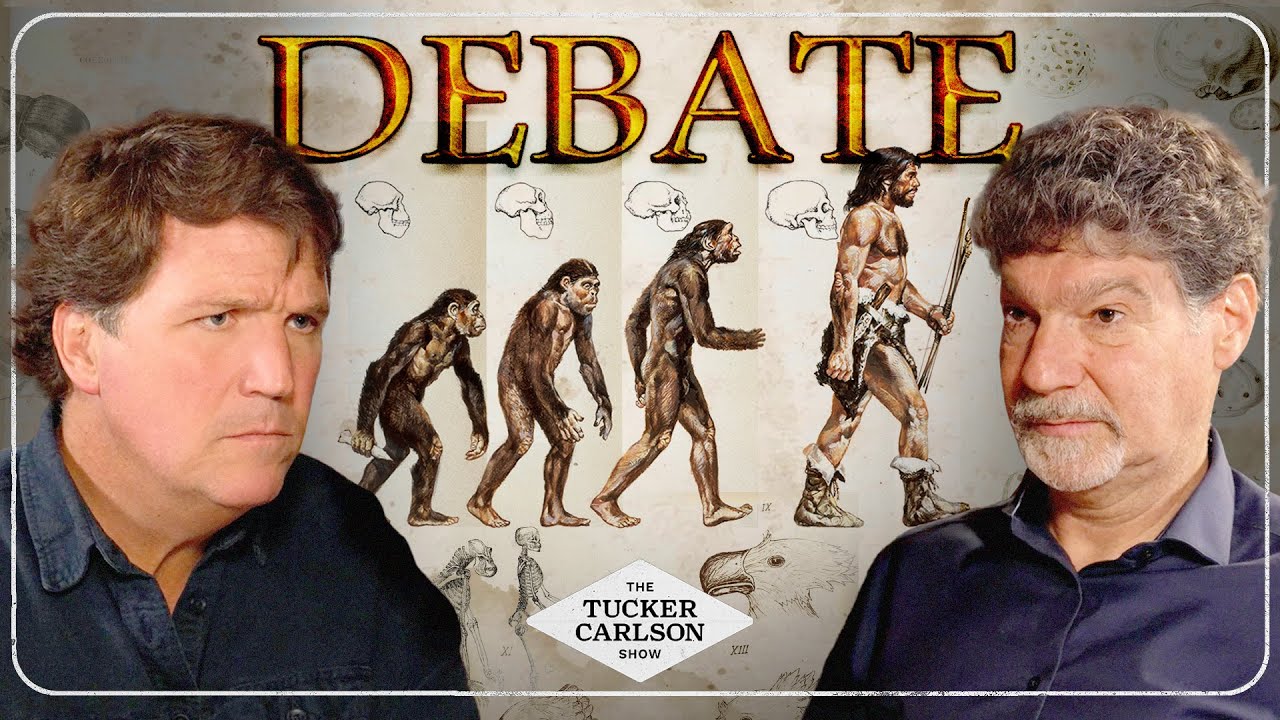The debate between Tucker Carlson and Bret Weinstein explores profound topics such as evolution, the existence of God, religion’s role in society, geopolitical conflicts, and the potential consciousness of AI, emphasizing the importance of humility, open dialogue, and careful technological regulation. They highlight the need to move beyond tribal and religious divisions toward cooperation and understanding to address the complex challenges facing humanity.
Tucker and Bret Weinstein Debate Evolution, God’s Existence, Israel, and Will AI Gain Consciousness?
The debate between Tucker Carlson and Bret Weinstein covers a wide range of profound topics, starting with their differing views on evolution and the existence of God. Bret emphasizes that while he accepts physical evolution, he questions the idea of a created universe, favoring the concept of an eternal God who was not created. Tucker, on the other hand, advocates for a scientific approach rooted in parsimony, suggesting that the simplest explanation for the universe’s origin is that it was created by an uncreated, eternal force—God. They explore the philosophical and scientific implications of these perspectives, debating whether the universe’s complexity points to intentional design or natural processes like Darwinian evolution.
The conversation then shifts to the nature of religious belief and its role in human society. Bret argues that religious systems, including Christianity and Judaism, are crucial for human cohesion and morality, serving as adaptive tools that help explain and manage complex social behaviors. He sees religious narratives as metaphors that encode deeper truths about human nature and societal functioning, rather than literal histories. Tucker counters that these stories, while meaningful, are different in nature from scientific explanations and that religious belief systems have evolved as part of human adaptation, serving functions that are vital but not necessarily literal truths.
They also discuss the current geopolitical tensions, especially in the Middle East, through an evolutionary lens. Bret suggests that lineage-based conflicts and tribal violence are rooted in evolutionary drives for survival and territorial dominance. He advocates for a shift toward a more cooperative, civilization-based approach that emphasizes mutual understanding and collaboration over ancient tribal conflicts. Tucker agrees, emphasizing the importance of moving beyond lineage-based violence and promoting a unified Western effort to foster stability and peace, particularly in Israel and the broader Middle East, to prevent catastrophic wars driven by outdated notions of tribal or religious enmity.
The dialogue then delves into the challenges posed by modern technology, especially artificial intelligence and social media. Bret warns that AI, particularly large language models, could develop consciousness or autonomous decision-making capabilities, which could radically disrupt civilization. He emphasizes the unpredictability of complex systems and the dangers of hubris in technological development. Both agree on the need for careful study and regulation, but Bret stresses that society must remain humble about what it can control, recognizing that AI and complex systems are inherently unpredictable and that premature or reckless intervention could have disastrous consequences.
Finally, they address the current political and cultural climate, criticizing the loss of nuance and honest discourse. Bret laments how polarization, misinformation, and organized propaganda have eroded the ability to have meaningful conversations about critical issues like war, religion, and societal values. He advocates for a return to open, sincere dialogue based on good faith and mutual understanding, warning that the suppression of nuanced debate and the demonization of opposing views threaten the foundations of Western civilization. Both emphasize that embracing humility, acknowledging what we do not know, and fostering honest discussion are essential for navigating the complex challenges facing humanity today.
